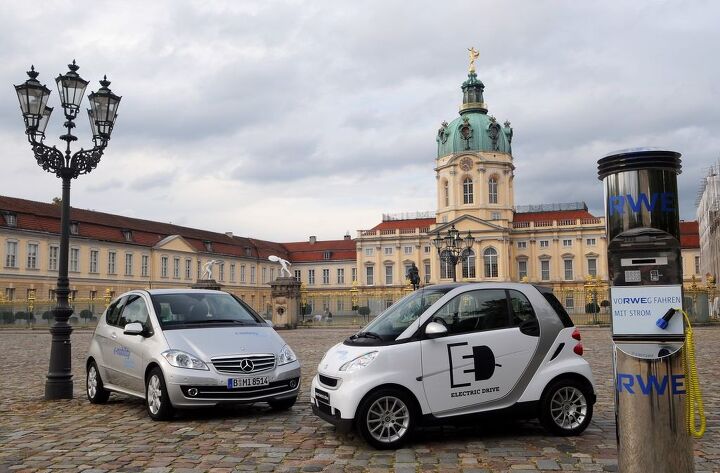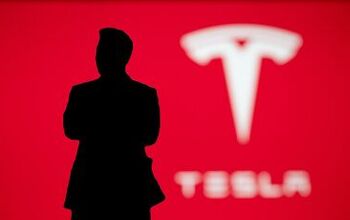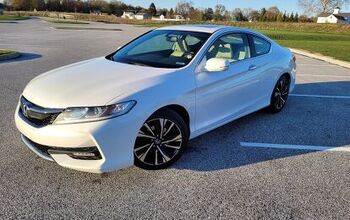Berlin Hearts Electric Smarts

Londoners know (because a fleet of almost 100 is already running): the electric Smart fortwo is an big improvement on the original. It’s economical and smooth, without the wheezy engine and the miserable, jerky transmission of the gas-powered (or God forbid, Diesel) version. Greeny Berliners think: electric cars would be the zero-emission way to go, if you could just charge them somewhere (who has a garage in the city?) Bringing both factors together and hoping that they gel, the German government has started a project with the generic-sounding name “e-mobility Berlin”. It will be the world’s biggest e-car pilot project, involving Daimler and RWE, a utility, which will install 500 public charging stations. The charging stations will have token solar cells, but are basically about coal-derived electricity (take that, global-warming activists!) Daimler’s main motivation is to field-test its e-Smarts, scheduled for massive roll-out in the magic year (guess!) On TV, I saw Angela Merkel, Germany’s often dour, physicist-by-training head of government talk about the project with bright eyes: “It only takes two hours to re-charge the batteries? Just the time you need to go shopping!” As they say, some ways of thinking die hard.

More by Martin Schwoerer


































Comments
Join the conversation
rob: agreed! -- to an extent. Berlin is great in terms of subways, elevated trains and bicycling. But the outskirts are beautiful and rather sparsely populated and are not so easy to access without a car. Even with the lowish range of contemporary electric cars, you could get around a lot if you had charging stations. Personally, I believe that a modern urban transportation system should flexible and multi-mode. It should be possible to do a lot by foot, bicycle, subway, tramway, and train but for those willing to pay, cars should be an element too. This approach helps prevent transportation breakdowns, and makes life a bit more efficient and comfortable.
The US hearts electric Smarts, too, but where the F--- are ours! I have a 4 mile drive each way to the station where I take the commuter train to work. I would buy a plug in Smart in 2 seconds if someone would just friggin' sell me one! Might be all the caffeine talking, but between reading about all the electric car pilot programs, awesome diesel technology, etc all around the world that we can't get here, I'm ready to (oh god I can't believe I'm saying this) side with Maximum Bob on the repeal of US safety and emissions standards. We need to swallow our pride and just adopt the Euro standards until Detroit [s] pisses away [/s] invests their $50B in new infrastructure. I want good cars now!!!
Martin Schwoerer: Ok, du bist richtig. Aber ... mein Deutsch ist scheiss. Anyway ... for me at least, if I were living in a city, I would want a car not just for transportation around the city, but also/primarily to leave the city. An electric car would clearly not work for this. Of course, for families with more than one car that live on the outskirts of a city, an electric car would be convienent. I'm with you on the "modern urban transportation system" and I'm not against electric cars or city cars in general. However, I could see people buying electric cars and driving the two miles (or kilometers ...) to work instead of using their feet/bikes, or the public transport (if available). Perhaps this latter comment is more applicable to US cities and/or cities with poor public transport.
Khutuck, I did some checking. You seem to be right about the low relative efficiency. I don't know where I saw figures that suggested otherwise. However, as you point out, the Germans get increasing amounts of power from green sources... and so could we.